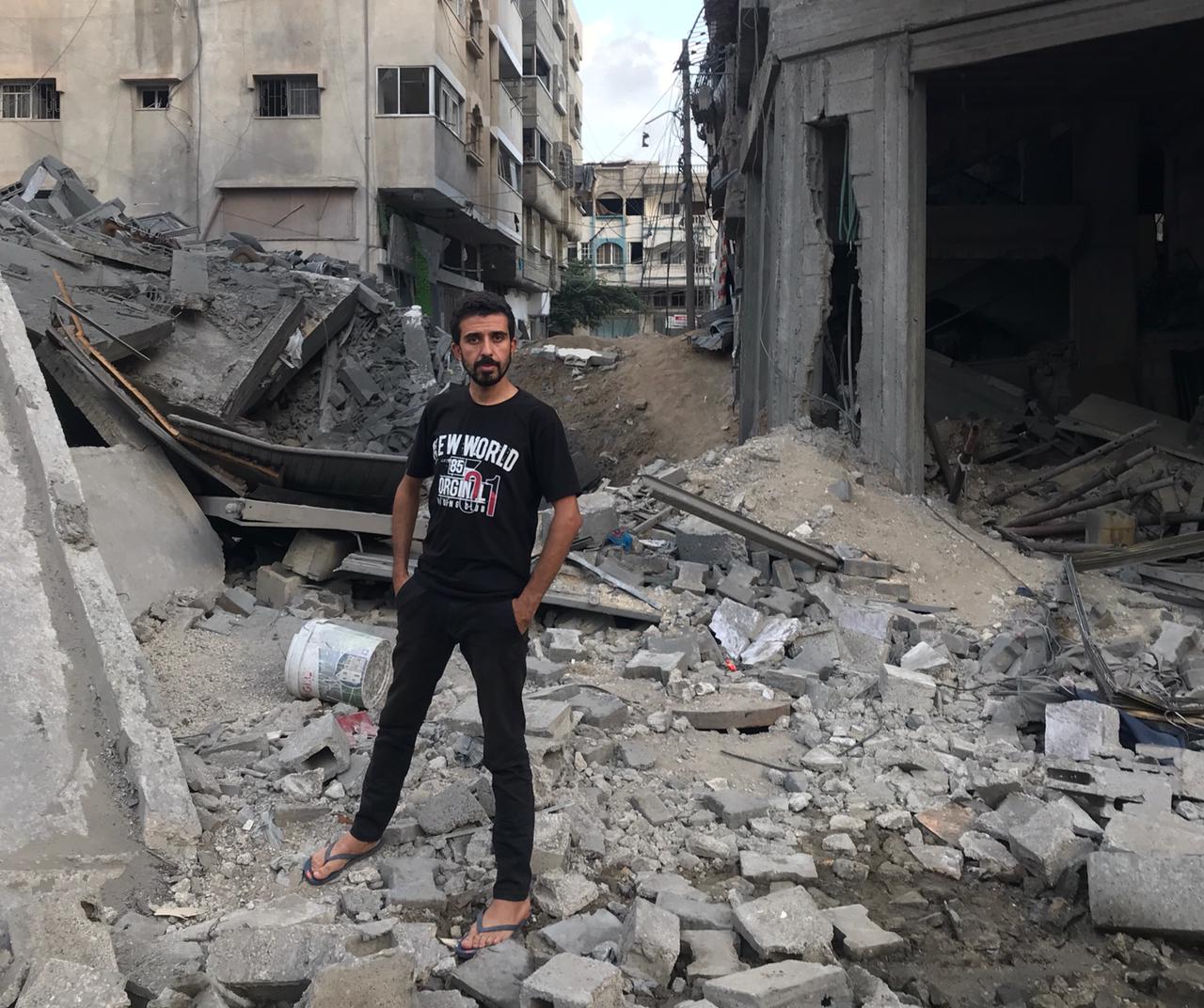In Gaza, my home, I see nothing on the ground but destruction and rubble. There is death everywhere. Street views have changed. Buildings and houses have been destroyed, and memories erased.
One of the worst moments I experienced was when my two young children were crying, afraid of the sounds of airstrikes and the Israeli bombing. A missile fell next to the house we were in, causing glass to shatter. The explosion was strong and terrifying.
My biggest fear is losing my children and loved ones.
I was born in Gaza City and have lived there since my birth, for 33 years. I work as a photographer.
I’m still there now, near the north of Gaza. I left my own house to go to my relatives’ home. I’m staying with my in-laws, my wife, and my children. There are another 40 people around us who are also trying to seek a safer place.
We hear horrible sounds of airstrikes and explosions all the time, which get worse at night when Israeli bombs and missiles fall on Gaza without warning. People are very frightened by this war; I believe it is a genocide.
Many people are homeless because the Israeli Air Force bombed their homes. They move from one place to another without any guarantee of protection.
A large number of these homeless Gazans are in hospitals and schools without access to the minimum necessities of life, and this is all in addition to the large numbers and crowding of people everywhere.
Life without electricity, water, and the internet is similar to primitive life, with a slight difference. There is no electricity at all, and therefore there is no water and no internet because the supply of both depends on electricity.
There are some generators and batteries that we rely on to charge phones, and we get some water in a very traditional way by the packing of wells. If we get lucky, we find enough clean water to drink a small amount daily and to save for other people.
Also, the lack of electricity leads to us to remain in complete darkness at night, without any lighting. The children are afraid and crying, and the fear increases at night as we hear Israeli shells falling on us. It is terrifying.
We also cannot store food or bread—which is rare to find—because there is no electricity to operate refrigerators. So we must obtain food every day—if we can find it.
I cannot obtain milk for my child, who is just three months old, because of this stifling siege. I feel helpless as he cries.
I feel afraid. I fear for my children; the terror they feel every time they hear bombing. I fear the loss of my family and loved ones. I fear the massacres committed by the Israeli occupation.
I am disappointed because the world is watching Israel bombing innocent people with all kinds of weapons, destroying our homes and lives, cutting electricity, water, food, medicine, targeting all aspects of life in Gaza.
The world keeps talking about their opinions. They let us down. I have a mix of feelings: Anger, fear, and sadness.
There’s no safe place in the Gaza Strip; not the north, not the south.
It is not realistic to expect people to move south for their safety, but people are afraid, especially with children. They try to escape with their life.
My message to the world is to take action and stop this injustice that the Israelis have been using against the Palestinian people for decades.
How long will we remain under these wars? How long will the Israelis continue to destroy our homes and kill my people? More than 700 children have been killed in a week. What are you waiting for?
We are humans just like Ukrainians. The Israelis are not better humans than us. We demand justice and that they leave us to live a normal life.
I don’t have any plans right now. We don’t know how long this war will last and we don’t know what they will do to us.
At any moment our lives could end because of this war.
For me, I decided to stay in my city.
If I die, I prefer to die in my house with my family, with dignity.
Omar El Qattaa is a photographer based in Gaza City.
All views expressed in this essay are the author’s own.
Do you have a unique experience or personal story to share? Email the My Turn team at myturn@newsweek.com.

